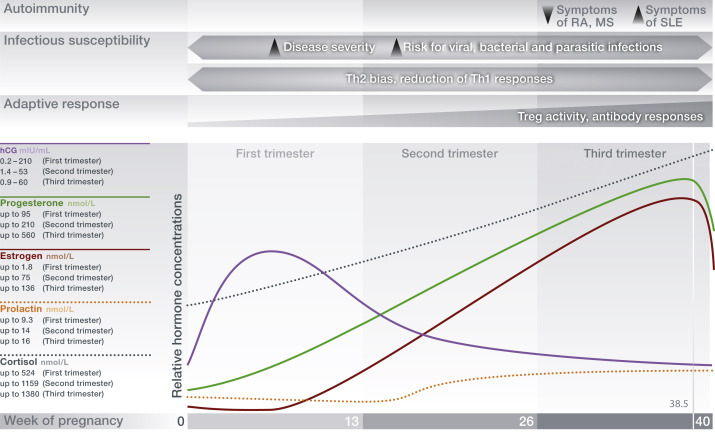Figure 6.

Pregnancy-associated hormone levels establish maternal immune adaptation. Concentrations of estrogens and progesterone are substantially higher during pregnancy than during the nonpregnant female menstrual cycle due to their placental secretion and stimulation of production via the HPG-axis. Pituitary-derived prolactin and placenta-derived human chorionic gonadotropin (hCG) as well as GCs sustain pregnancy. Alterations of the maternal immune response toward a Th2-biased phenotype results in an increased susceptibility to infections. Autoimmune disease progression is either ameliorated or exacerbated depending on the underlying effector mechanisms involved in autoimmune reactions (B- or Th1-mediated autoimmunity). hCG human chorionic gonadotropin; MS, multiple sclerosis; RA, rheumatoid arthritis; SLE, systemic lupus erythematosus; Th, T helper 1 or 2–mediated immune response.
